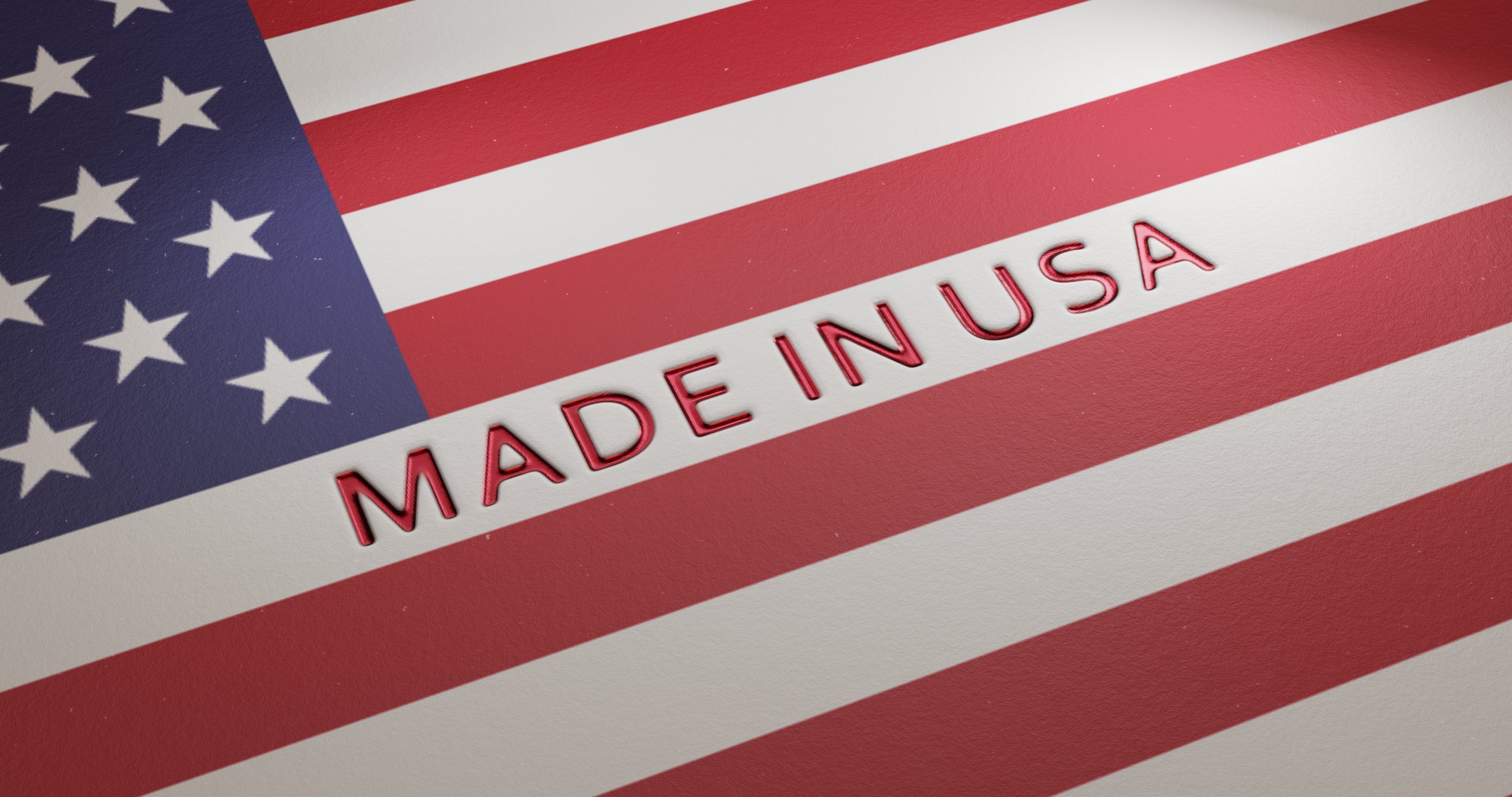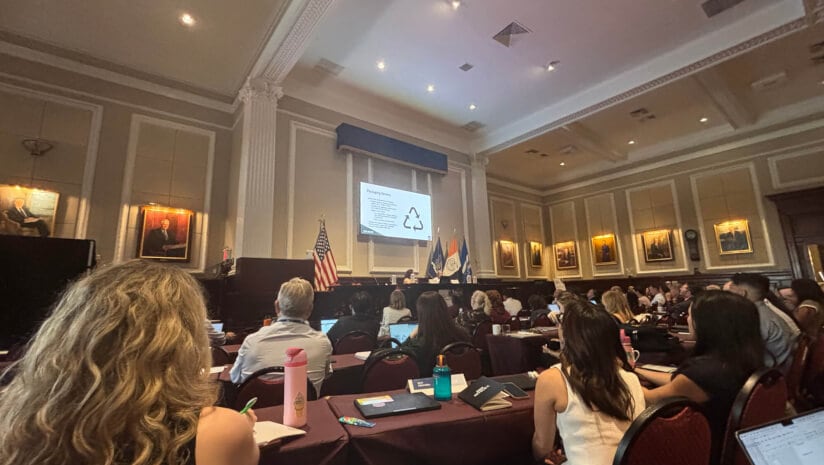“‘Made in the USA’ is not just a slogan—it’s a sign that a product connects us to the workers and businesses that make America great,” said FTC Chairman Andrew Ferguson in a press release. “Consumers want to have confidence that when they buy something labelled ‘Made in the USA’ they are actually supporting American workers and the American economy. Companies that falsely claim their products are ‘Made in the USA’ can expect to hear from the FTC.”
The four warning letters were not sent to any dietary supplement companies. One is a flagpole retailer, one is a footwear maker, one is a football equipment company, and one is a manufacturer of personal care products, but the requirements are still applicable to manufacturers and marketers of dietary supplements.
The warning letters explain that the FTC Act and the Made in USA Labeling Rule require that products advertised as “Made in the USA” must be “all or virtually all” made in the United States.
“America First”
“It is important to remember that US Customs’ laws require supplement labels to state a product’s foreign origin (e.g. “Made in China”) if it has not undergone a ‘substantial transformation’ in the U.S., which can require a legal analysis,“ explained Ivan Wasserman, managing partner at Amin Wasserman Gurnani, LLP.
”A “Made In USA” claim is not required by any law, and is considered a marketing claim. Like any marketing claim, it cannot be false or misleading, and the FTC can consider it to be misleading to make an unqualified MIUSA claim for products that contain imported ingredients," he said.
“As it is not a ‘100% not-imported’ standard, and the FTC has not provided any bright lines, determining whether a product with some amount of imported ingredients can make an unqualified claim can be a tricky legal analysis.
Wasserman added that while supplements were not a primary target, the FTC actively enforced its MUSA rules under the Biden Administration. Given the Trump Administration’s “America First” agenda, he said it is not at all surprising that it would continue or even increase that level of enforcement.
“In addition to the FTC, the National Advertising Division has been involved in MUSA cases, as have consumer class actions,” he said.
Dietary supplements
Speaking at the 13th Annual ACI-CRN Legal, Regulatory and Compliance Forum on Dietary Supplements recently, Christine Delorme, an attorney in the FTC’s Division of Advertising Practices, explained that the “Made in USA” rule is subject to civil penalties.
“There’s a difference between made in the USA and assembled in the USA, or made in the USA with imported ingredients,” she said. “Made in the USA means all or a substantial all of everything that goes into your product—that includes the ingredients, if you import all your ingredients from abroad.
“I realize that for dietary supplement manufacturers, there are going to be a lot of instances where they’re very constrained on where they can get their ingredients. There are certain plants and botanicals that it’s just not feasible to source them in the United States, but if you’re importing all your ingredients, generally speaking, for something like a dietary supplement, I don’t think you are going to be able to make an unqualified Made in the USA claim, but, again, you can always qualify it.”
“We do take “Made in the USA” very seriously,” she added, noting that William Sonoma incurred a record $3.2 million civil penalty last year, the largest ever imposed in a “Made in USA” case.
Online
The commission also sent letters to Amazon and Walmart this week explaining the “Made in USA” (MUSA) requirements and how they apply to online marketplaces. Those letters also cited examples of third-party sellers who could be making alleged deceptive U.S.-origin claims on those platforms.
“Companies that violate the FTC Act and the MUSA Labeling Rule may be subject to legal action including the issuance of an administrative subpoena, the filing of a federal lawsuit, injunctive relief and civil penalties or other monetary relief,” stated the Commission in a release.
Independence Day
While “Made in USA” claims are seasonless, it is common for marketers to do an enhanced, themed push to promote U.S. manufacturing around patriotic holidays, Julia Solomon Ensor, counsel at Reed Smith and former “Made in USA” program manager at the FTC, told our sister site CosmeticsDesign USA.
Ensor cautioned that such holiday-themed claims may overstate a product’s U.S. manufacturing or content. July, designated as “Made in the USA Month” by the FTC, sees the agency closely monitoring potentially deceptive claims.
Ensor identified two frequent mistakes: “Marketers assume that because they have a factory in the U.S. and don’t have to label their products as ‘imported’ for Customs purposes, their products must be MUSA for advertising purposes. That’s not right,” she said.
“If your product has more than de minimis imported content, advertising it as MUSA will deceive consumers and invite regulatory and class action challenges.”
The second pitfall is failing to revise advertising after changes to the supply chain. For example, she cited an FTC case involving Pyrex, where claims about U.S. origin persisted despite production having moved to China.
Heightened risk for deceptive labeling
Ensor emphasized that product labels carry added legal risk due to the FTC’s MUSA Labeling Rule.
“Because the FTC is not entitled to seek monetary relief in federal court for non-rule related violations of the FTC Act, this means errors on product labels have the potential to be much more costly than violations in non-label advertising,” she explained.
She also reminded manufacturers of FDA-regulated products, which includes dietary supplements, that labeling oversight may fall under the jurisdiction of both the FDA and FTC.
“Per a longstanding memorandum of understanding (MOU), the FDA generally takes primary responsibility for product labels and the FTC for non-label advertising, but that doesn’t mean FDA-regulated products are immune from FTC label review,” she added.





